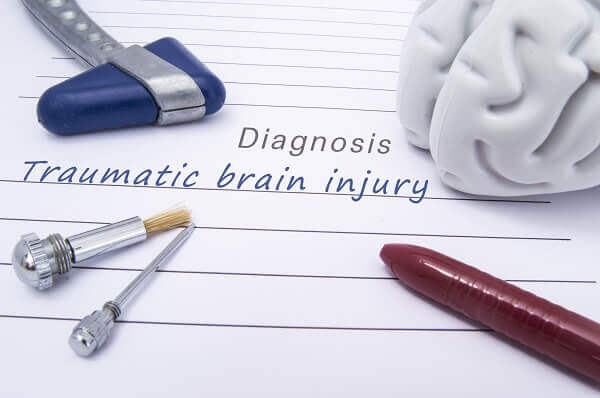
One of the most common symptoms following brain injury is a headache known as a post-traumatic headache.
Headaches after a TBI (Traumatic Brain Injury) may last longer than usual headaches, come and go, and could impact your quality of life. You might be unable to work, enjoy the things you usually do, and even have difficulty remembering things.
It is essential after any type of accident (whether it’s a car accident, trip, slip, fall, or sports injury) to look out for headaches and keep note of their duration, symptoms, and severity. Headaches indicate trauma to the brain, and in some cases, they could mean a serious issue that requires immediate medical attention.
What Bellingham Residents Should Know about Post-Accident Headaches
Immediately after a TBI, you might suffer a headache from fluid or blood collecting inside the skull. Headaches are common after minor and severe TBIs; therefore, a headache does not always indicate something life-threatening but still requires a physician look you over.
Headaches also occur after trauma to the neck, shoulders, and back, especially as the tension in those muscles and ligaments builds.
Common Types of Headaches after a TBI
Regardless of the severity of the accident, look out for these common headaches and seek medical attention right away if you notice any of these following traumas:
Migraine Headaches
Migraines occur when areas of your brain become hypersensitive. It triggers a pain signal, which slowly spreads to other portions of the brain. Migraines are more severe than classic headaches, and their symptoms include an array of headache-like discomfort and what is known as migraine aura.
Symptoms include:
- Nausea and vomiting
- Sensitivity to light and sound
- Dull, and throbbing sensation on one side of the head
- Seeing spots or bright lights (the aura indicating a migraine is coming)
Tension Headaches
Tension headaches are common; therefore, you might have experienced them in the past, even without head trauma. Tension headaches occur from muscle spasms, tension, and stress. Symptoms of tension headaches include:
- A tight, band-like squeezing around the entire head
- Pain in the front of the head in between the eyes
- Pain level that ranges from mild to moderate
- Typically appearing later in the day
Cervicogenic Headaches
Injuries to your soft tissues and muscles in the back and neck tend to cause cervicogenic headaches. The nerves inside the tissues of your neck have branches extending into the skull, which result in head pain. Common symptoms of cervicogenic headaches include:
- Pain starting in the neck and shoulders, then radiating upward over to the top of the head
- Neck repositioning makes the headache worse
- No nausea
- Mild to severe pain
Rebound Headaches
Rebounding occurs when medications you take to treat a headache cause a headache. Pain medications taken daily, especially on a regular schedule, might result in a headache if you were to miss a dose.
For example, after a serious accident, you are put on Vicodin daily. You follow the instructions but start to feel fine, so you quit taking it. Your chemical imbalance in the brain reacts by creating a rebound headache.
Rebound headaches are common without trauma, too – such as when you drink caffeine in the morning and it tapers off, or you try to quit caffeine without gradually decreasing it first.
Should You Worry about Post-Traumatic Headaches?
Yes.
Any time you suffer a headache after severe trauma, you cannot ignore it.
While headaches are not always dangerous, and they are common the first few days after a concussion, it is in your best interest to see a doctor. If you did not see a physician immediately after the accident, you might have a concussion. In most cases, even with a concussion diagnosis, you will not require further medical treatment but you will need to rest for a few days.
Other times, headaches are indicators of bleeding in the brain or spinal fluid leaks. This increased pressure. And if not removed immediately, can result in permanent brain damage, deficits, and even death in some cases.
How TBIs Are Diagnosed
If you suspect that you have a TBI, your physician will do a CT scan or MRI of the brain to look for any signs of active bleeding.
Treatment, following diagnosis, depends on your case, the severity of the injury, and the symptoms you suffer. Sometimes, prescription medications are used to help alleviate symptoms. Other times, you may need hospital admittance for observation or neurosurgery.
What If Headaches Remain Recurrent after I Recover from My TBI?
Unfortunately, the damage from a TBI or the accident itself could leave you suffering from chronic migraines and headaches. These frequent headaches will require treatment, often through prescription medications. Depending on the root cause of the recurring post-trauma headaches, you may be prescribed blood pressure medications or antiseizure medications to help reduce the frequency and intensity of your headaches.
Can You Receive Compensation for Headaches Following an Accident?
After an accident, if you are diagnosed with a traumatic brain injury and you suffer chronic migraines or headaches, you may be entitled to compensation.
Chronic headaches and migraines can be debilitating. They can impact your ability to work, to leave the house, or to function normally on a daily basis. You might be medication-dependent the rest of your life to manage the pain. And when it affects your income, the financial stress may exacerbate the headache condition even worse.
If someone’s negligence caused the accident, then you should contact an injury attorney, right away. An injury attorney is an advocate who can help you explore your options, determine if you have a case, and help you push forward with your claim.
Whether it was a car accident, slip and fall, or other incident caused by someone’s negligence, speak with the attorneys from Brett McCandlis Brown & Conner, PLLC.
Our team understands what you are going through, and we want to help you secure the compensation you need to pay for medical costs, lost wages, and your physical pain and suffering.
To get started, we highly recommend you call for a free case evaluation at 206-922-4197 or request an appointment online.


